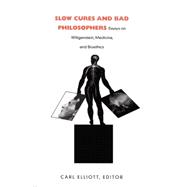
Note: Supplemental materials are not guaranteed with Rental or Used book purchases.
Purchase Benefits
What is included with this book?
| Acknowledgments | |
| Abbreviations | |
| Introduction: Treating Bioethics | |
| Religion, Superstition, and Medicine | |
| Patient Multiplicity, Medical Rituals, and Good Dying: Some Wittgensteinian Observations | |
| "Unlike Calculating Rules?": Clinical Judgment, Formalized Decision Making, and Wittgenstein | |
| Wittgenstein's Startling Claim: Consciousness and the Persistent Vegetative State | |
| Attitudes, Souls, and Persons: Children with Severe Neurological Impairment | |
| Why Wittgenstein's Philosophy Should Not Prevent Us From Taking Animals Seriously | |
| Injustice and Animals | |
| Bioethics, Wisdom, and Expertise | |
| Wittgensteinian Lessons on Moral Particularism | |
| Wittgenstein: Personality, Philosophy, Ethics | |
| Notes on Contributors | |
| Index | |
| Table of Contents provided by Publisher. All Rights Reserved. |
The New copy of this book will include any supplemental materials advertised. Please check the title of the book to determine if it should include any access cards, study guides, lab manuals, CDs, etc.
The Used, Rental and eBook copies of this book are not guaranteed to include any supplemental materials. Typically, only the book itself is included. This is true even if the title states it includes any access cards, study guides, lab manuals, CDs, etc.